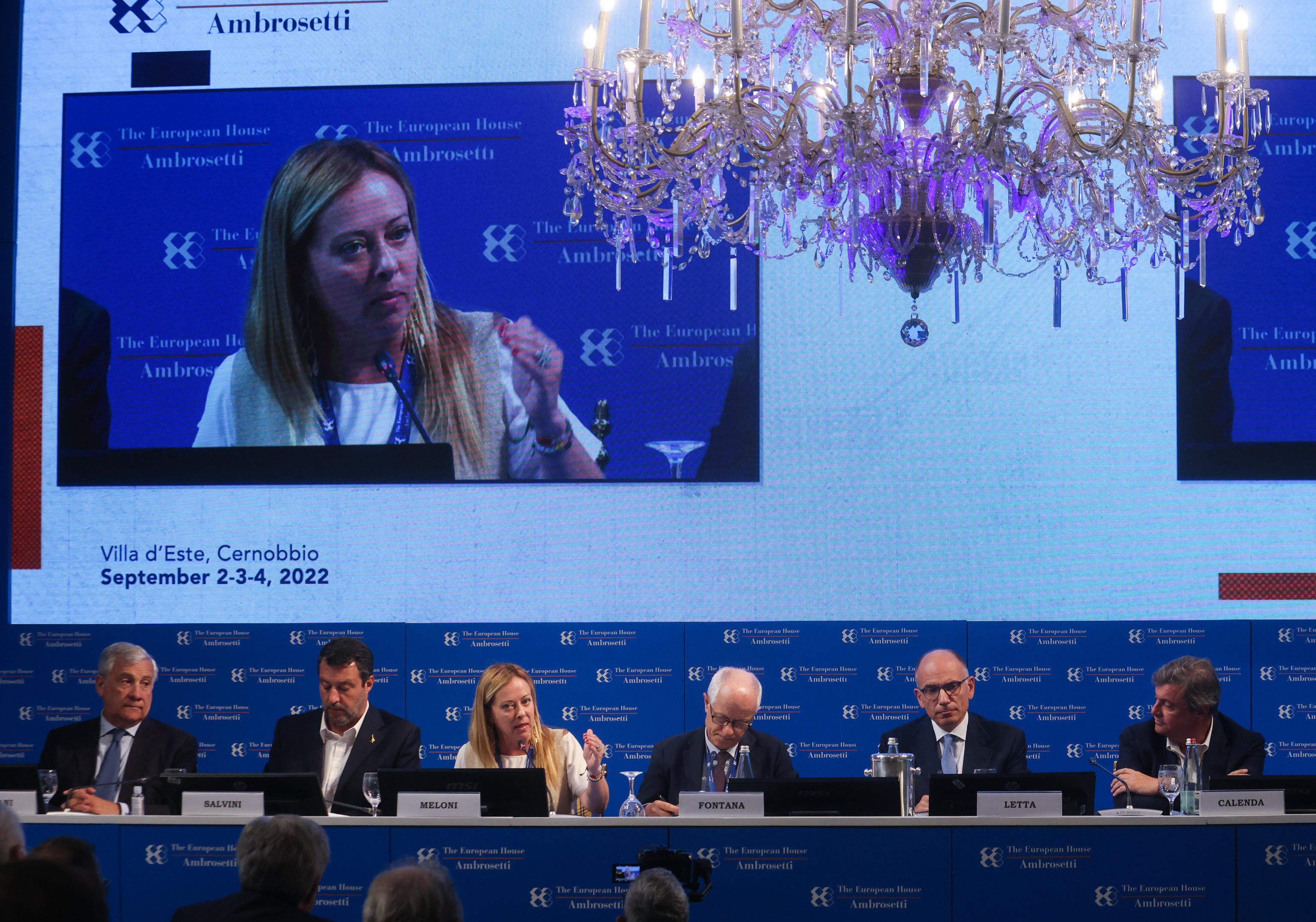Italy
Italy's entanglements with Russia and the parties' energy programs

Matteo Salvini und Giorgia Meloni
© picture alliance / ANSA | MATTEO BAZZIRussia and Italy have been more closely linked since the 1960s than many think. Italy was home to the largest communist party this side of the Iron Curtain in Europe, and its business community concluded one lucrative industrial and energy treaty after another with Russia - at the behest not least of Italy's conservative Christian Democrats. The Italian car manufacturer FIAT even built a huge plant in the communist country - in the city of Togliatti on the Volga, named after an Italian communist party leader.
Governments of all stripes have continued to promote economic and energy ties with Russia even after the end of the Cold War - not unlike Germany's approach, albeit less naively. The belief in "change through trade" was less in the foreground; even more so was an uncritical foreign and foreign economic policy guided by interests and sympathies. Personal relationships always played a prominent role. The "bromance" between former prime minister Silvio Berlusconi and dictator Putin was certainly the best known, but it was by no means the beginning of the special relationship between the two countries - nor can it be easily assigned to the left-right schema.
This is still true today: For example, unlike her possible allies from "Forza Italia" and the "Lega," the far-right poll queen Giorgia Meloni of the Fratelli d'Italia is not a "Putin-understanding" but presents herself, especially since the outbreak of the Ukraine war, as an advocate of the transatlantic alliance. However, as recently as 2019, she went on record saying that Órban was her "role model." It is her "Orbanesque," hard-line anti-EU course that poses the greatest danger about relations with Russia. Putin could not have written down her dream of a "Europe of fatherlands" more beautifully.
Mateo Salvini, on the other hand, like Berlusconi, was a frequent guest of Putin and clearly positioned himself in the election campaign for an end to EU sanctions as a reaction to the Ukraine war. On the left of the spectrum, it is the populist "5-Star Movement" that, despite its basic verbal support for Ukraine, explicitly opposes arms deliveries to the country under attack. Russia can also rely on decidedly sympathetic reporting in Italy. This applies to private broadcasters, especially from Berlusconi's media empire "Mediaset," but also to the public RAI.
In terms of energy policy, Italy faces similar challenges to Germany due to its heavy dependence on Russian gas. In July, however, the country had already managed to reduce its gas imports from Russia by 15 percentage points year-on-year to 25% - while Germany still met around 35% of its gas needs with Russian exports.
The issue of energy is therefore high on the agenda in this election campaign, and the biggest difference between right-wing and left-wing parties is the nuclear issue. Following the EU decision on taxonomy, which at France's insistence allows nuclear power to be considered a clean energy source, the Fratelli d'Italia, Lega and Forza Italia are in favor of nuclear power, which Italians have traditionally been critical of. After Chernobyl, the country shut down the last two of its four reactors in 1990; a return to nuclear power (the plan was 25% nuclear by 2030) was rejected in a 2011 referendum.
The parties of the emerging right-of-center coalition ("Fratelli," "Lega" and "Forza Italia") also advocate the expansion of renewable energy, hydrogen and the exploitation of domestic natural gas reserves.
The "Third Pole" (the center's liberal electoral alliance with "Azione" and "Italia Viva") and the liberal party "Piu Europa" also back nuclear energy, new regasification plants for LNG (liquid natural gas), new gas production facilities in Italy - and renewables.
Everyone can agree on renewables, especially of course the left-wing parties, led in the polls by the Social Democrats ("Partito Democratico"). They all reject a return to nuclear energy. The "5-Star Movement" also rejects new natural gas production facilities. It wants to set up an "Energy Recovery Fund" for joint European gas procurement and storage. From a liberal point of view, things will be particularly difficult with the left-wing alliance UP ("Unione Populare"), which advocates an end to sanctions against Russia on the one hand and nationalization of the Italian energy sector on the other. If there were still a need for proof of the ideological attachment of parts of Italian politics to Russia and its past - here it is.
David Henneberger is Project Director of the Friedrich Naumann Foundation for Freedom for Spain, Portugal & Italy, based in Madrid.
